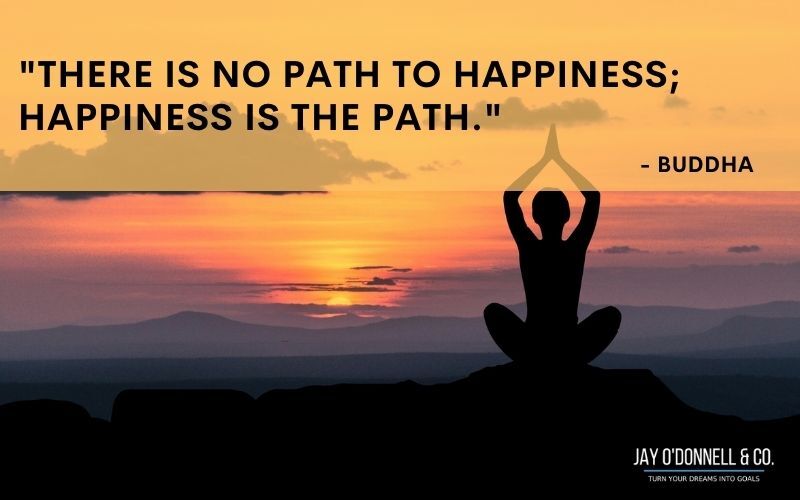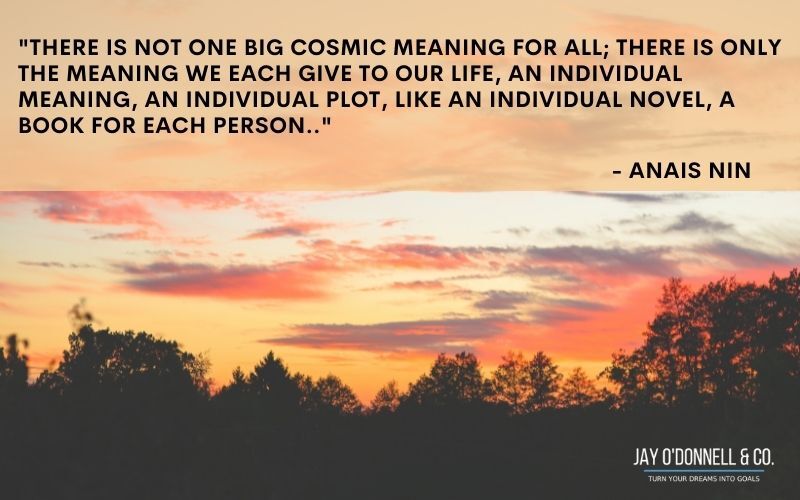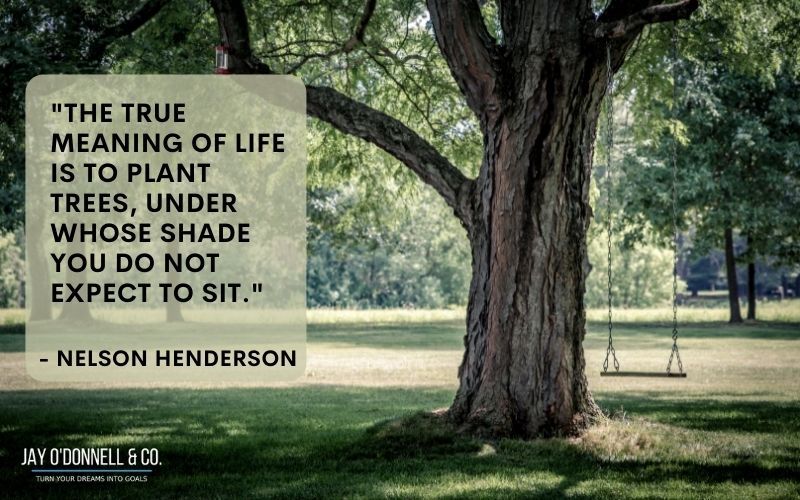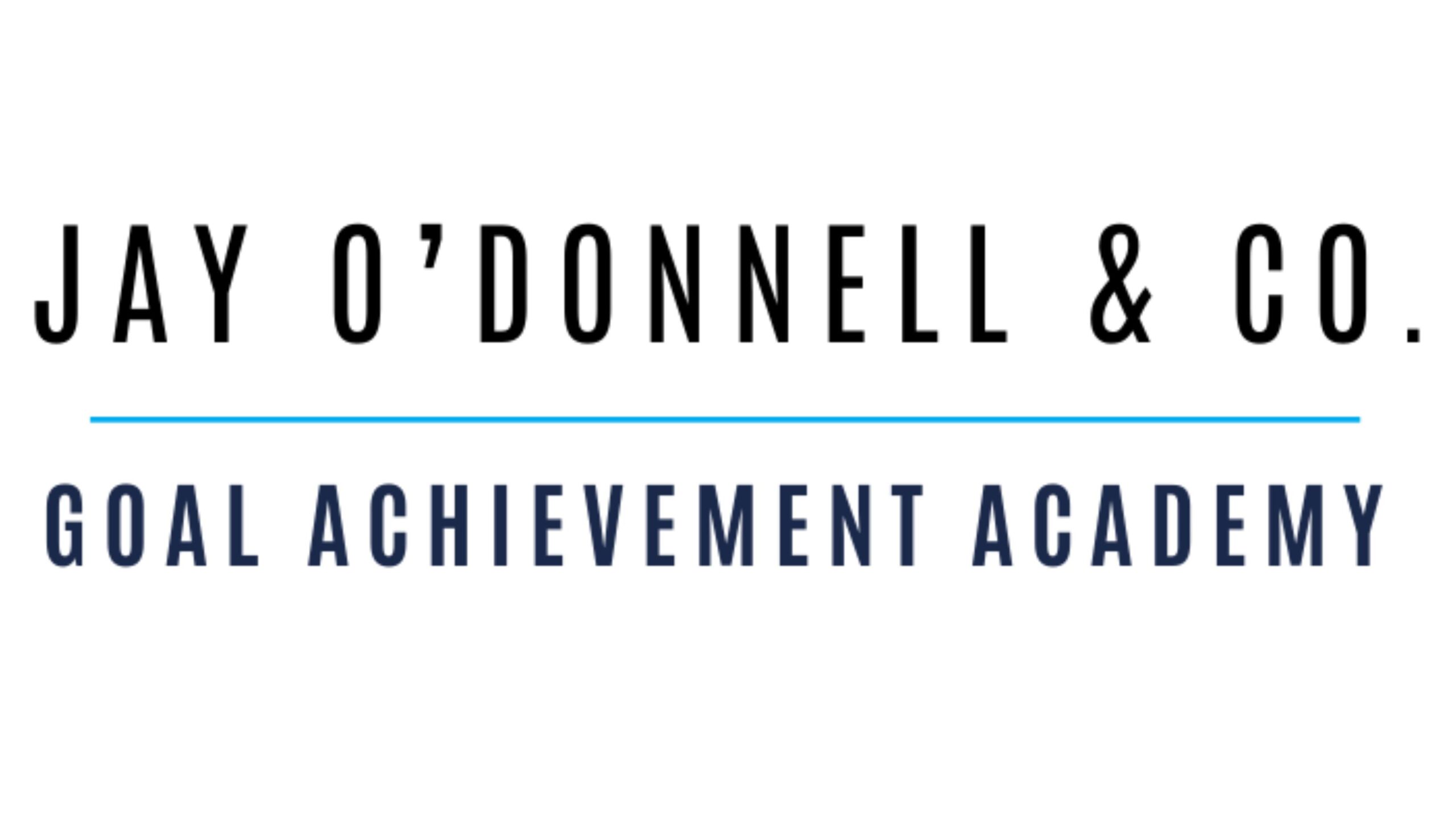When setting goals, a lot of people jump specifically to the idea of ‘obtaining wealth and/or success.’
And this makes sense.
As a general rule, we want to succeed in life.
We want to make more money, become more successful, and basically increase our ability to live a safe, secure, and prosperous life—not just for ourselves, but possibly also for our families and loved ones.
But here’s the thing.
While there’s nothing inherently wrong with focusing more on the ‘material’ aspects of what goal setting can help you to achieve, there’s also something to be said for looking at the meaning and purpose behind why you want to succeed.
See, as I was working my way to success and achieving my own goals through life, I actually started off with a volunteer experience that really shaped my beliefs about the value of volunteering for a cause that you believe in.
Volunteering, incidentally, helped me to form connections that eventually set me upon the path to success.
But that wasn’t all it did.
Volunteering also helped me to understand that meaning and purpose often go hand-in-hand with happiness, satisfaction, and fulfillment in life.
And so, in this post, you’re going to learn some basic information about why pursuing a deeper purpose and meaning in your life is just as important as pursuing financial success.
Let’s break it down.
What Are Purpose Goals?
Purpose goals are best defined as goals that focus more specifically on creating purpose, meaning, contentment, happiness, and satisfaction in life, as opposed to goals that are specifically intended to make you more money, further your success, or help you to obtain material wealth/nice things.
A Lot Of People Set Goals Specifically To Acquire Things – But ‘Purpose Goals’ Are Also Important

Once again, setting goals to achieve things or to further your financial standing in life isn’t a bad thing.
In fact, this is a great reason to set goals.
Most people love the idea of:
- Making more money
- Driving nicer cars
- Living in a nicer house
- Having nice things
- Enjoying the increased social status and standing that comes from being a financial/business success
- Not needing to worry about money or financial stress
And to be honest, these are great reasons to set goals and work hard.
But here’s the truth of the matter…
The ‘financial gain’ and ‘physical success’ part of it is only half of the equation if you truly want to experience deeper and more profound happiness in your life.
These things are important for success, and to give you the resources to navigate life in a way that’ll help you to provide for yourself and your family—but these things won’t necessarily contribute more to a greater sense of life purpose or meaning.
We Miss A Big Part Of What Makes Life Satisfying When We Only Pursue ‘Things’ For Ourselves Instead Of Also Pursuing ‘Purpose Goals’

Let’s get right to the heart of the issue.
Yes, having more money (and making more money) is great.
And it definitely makes you happier and less stressed to move forward and achieve your goals.
But there will also be moments where you will stop and ask yourself…
“Why am I doing this? What is this for? Why don’t I feel happier? Why don’t I feel a greater sense of purpose as I accomplish these things and move my success forward?”
I actually had a student who voiced this exact phenomenon perfectly:
“Over the course of a 6 month period, I leveled up my life tremendously as a result of adopting better goal-setting habits. I actually doubled the amount of money I made, cut some negative people out of my life who were holding me back, and really started to make headway in starting my second business.
But here’s the thing.
As my success grew, I certainly got ‘happier’ in the sense that my life wasn’t as ‘stressful’ out of basic need and privation. But I did get to a point where I started to feel like it was all just kind of futile.
I struggled to feel like there was really any deeper meaning behind what I was doing. Yes, I was renovating my house, paying off my nice car, buying fancy dinners at nice places whenever I wanted, going on dates, buying nicer clothes, etc.
But still—I felt like there was something missing.
That’s when I actually started looking into fostering animals. And at this point, I’ve reached the stage where I’ve even filled out and completed the application for it.
Why would I do this? I mean, why would I spend a couple of hours each day considering fostering animals when I could just use that time to keep making more money and enjoying the nice things I can now buy with this extra money I’m making?
The answer is that, at the end of the day, there’s a sort of ‘emptiness’ inside of me—and I’ve realized that this emptiness stems from the fact that my entire life, for about two years now, has completely been based on achieving financial, business, and life success for myself. I’ve realized that I haven’t been giving anything back to the world—and that has made me feel hollow and vapid inside.
That’s why I’m so driven to pursue something that may not seem to make financial sense (like fostering animals), but that I still feel driven to do—because it’s something that I care about, that’s selfless, that can actually make a real difference in the world.”
See, my student was picking up on something that a lot of people start to discover when they reach the point in their life where they realize that goals do work when it comes to achieving greater life success—but that you must also incorporate some kind of community service and/or deeper meaning and ‘giving back’ within those goals if you want to experience the fullest range of benefits (and the greatest levels of happiness).
This Speaks To The Human Desire For Purpose And Meaning

As humans, we have a deep and inherent need for our lives to mean something.
This is probably rooted in our deep and inbuilt empathetic nature, which is a tool that helps us to interface with others, and gives us a strong desire to do good to others and give back to our community.
This does two things.
- It helps us to survive, because it drives us to want to give back to our communities—thus, making us a more important part of those communities.
- But it also serves the cooperative side of human nature. The human proclivity for social cooperation, which is arguably one of our greatest strengths.
And it doesn’t take a rocket scientist to see that these emotions that we experience—this deep and inherent need for meaning, fulfillment, and purpose—is probably an evolutionary program that we’ve developed because humans who developed this program tended to have better odds for survival than those who didn’t.
Happiness And Philanthropy Serve To Make Us Happier

There are basically two types of happiness.
And this post by Verywellmind.com has done a great job of laying these out.
- There is hedonia, or hedonic happiness, which is basically derived from the pleasure we feel when we do things that feel good.
In other words—buying a new car, relaxing in your comfortable chair, watching a movie on your big-screen TV—these are examples of things that bring us hedonic happiness.
- Then, there is eudemonia. This is the type of happiness that we get from seeking virtue and meaning in life. People who experience eudaimonic happiness generally feel like their lives have meaning, purpose, and value.
This is the type of happiness you feel when you feel like you’ve done a good job taking care of your children, when you help an elderly person across the street, when you volunteer at a soup kitchen, when you donate money to a cause that you believe in, when you stand up for your own moral principles, etc.
In modern psychology, hedonia is generally referred to as happiness, and eudemonia is generally referred to as meaning.
But see, here’s the thing:
Both of these types of happiness are important.
And whenever we’re setting goals, it’s important to take both of them into account.
We must make sure that, along with our more hedonistic goals, we also set some eudemonistic goals alongside them, to bring full balance to the scope of what we wish to accomplish in life.
These are both required for a life that’s graced with fulfillment, meaning, and success. And so, it’s vitally important that we make sure to make both a priority.
How Do You Set Goals For Your Purpose?
There are a few different ways to incorporate eudemonistic principles into your goal setting to create actual ‘purpose goals’ for yourself. Here are some of my favorite ways to do it.
1. Determine The ‘Why’ Behind Every Goal
Whenever you set a goal, you should also ask ‘why you desire to accomplish that goal,’ and then write out your reason.
For best results, you should also find a reason for why this goal fits into both your hedonistic and your eudemonistic desires for the future.
2. Set Goals Specifically Aimed At Giving Back
You can also set specific goals that have nothing to do with earning you money or gaining you nicer things.
One example of this could be a weekly goal to spend at least one day volunteering at your favorite non-profit organization.
Now, it’s also true that these types of activities might also help you in your business goals (for example, you can form connections and meet people).
And that’s great!
But as long as you keep the heart and spirit of that goal to do good for others and to sacrifice a bit of your time and effort to help make your community better—then the goal will be doing its true eudemonistic purpose, and you’ll be highly likely to experience a great deal of joy, meaning, and fulfillment from it.
3. Incorporate At Least One Regular Activity Into Your Life That’s Completely Focused On Serving Others Or Simply Doing A Good Deed
You don’t have to get really elaborate with this.
It’s just important that you make it a regular part of your life.
Serving others is so important—and being willing to devote a bit of your time, energy, money, effort, etc. to helping to make the world a better place, even if doing so doesn’t financially benefit you, is actually really important.
Why?
Because this is how you balance out that crucial balance of hedonia and eudaimonia, and experience greater and deeper levels of meaning and satisfaction in life.
The Vital Success Principle That You Must Be Aware Of…
There’s one more thing that you need to understand. And it’s simple.
Not only is service good for your feelings, emotions, and health; it’s also good for your success as well.
The person who balances these things well, and chooses to spend at least a bit of their time in selfless service to their fellow humans to make the world/community better, also experiences a deep and profound truth…
They will also tend to increase their odds for success in a general all-encompassing fashion, because they’ll be building the foundation for this success upon well-grounded and balanced fundamental principles.
In Conclusion
Hopefully, this post has helped you to understand the crucial need to pursue greater and deeper meaning and purpose in life—and that you should incorporate these things into your goal setting on a day-to-day basis.
This is so vitally important to be aware of.
And the sooner you embrace it and do your part to make the world a better place, the sooner you’ll begin to experience all of the many benefits that are sure to come along with it.
You can do it.
I believe in you.
Now, it’s time to get to work!
Best wishes.
Jay O’Donnell

